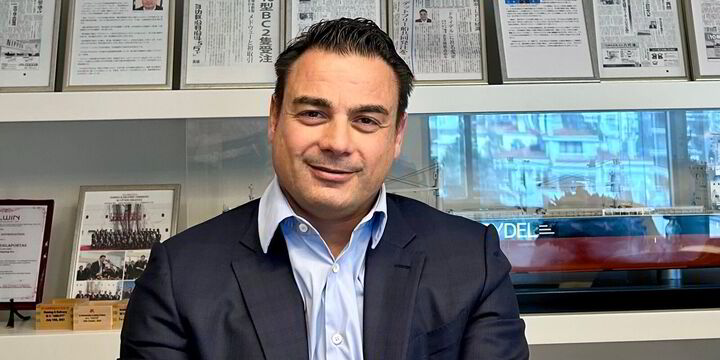Greek Shipping Tycoon Delaportas Expands Bulk Fleet

Costas Delaportas, the head of DryDel Shipping, is making waves in the shipping industry by ordering two large capesize bulk carriers from Japan’s Namura Shipbuilding. This marks a significant milestone for DryDel, as it is the company’s first venture into capesize vessels, following a successful run with smaller handymax ships. Delaportas, known for his swift decision-making and keen market instincts, believes that modern, Japanese-built ships will outperform older models in profitability.
Strategic Investments Amid Market Challenges
Last year, only three Greek shipping companies placed orders for large bulk carriers, with DryDel being one of them. Delaportas’ decision to invest in two 182,000-dwt capesizes in December reflects his confidence in the future of the dry bulk market. He previously faced skepticism when he ordered four 40,000-dwt handymax vessels during the height of the Covid-19 pandemic. However, those ships have since appreciated in value, validating his belief in the potential of Japanese shipyards.
Delaportas emphasizes that whether dealing with smaller handysizes or larger capesizes, his strategy remains consistent: modern vessels are expected to yield higher earnings than their older counterparts. The handymax ships, for instance, consume five to eight tonnes less fuel per voyage compared to older models, allowing DryDel to maintain profitability even in a challenging market. In fact, the company has reported increased net income for five consecutive years, a remarkable achievement given the industry’s difficulties.
Looking ahead, Delaportas anticipates a shortage of modern capesizes by 2028, coinciding with a predicted rise in bauxite exports from West Africa to China. He argues that capesize vessels are ideally suited for this trade, as they can efficiently capture economies of scale while remaining flexible enough to access a variety of ports. This strategic foresight underpins his decision to partner with a Japanese shipowner for the recent order, reinforcing DryDel’s strong ties to Japan.
Global Expansion and Industry Challenges
DryDel Shipping has expanded its operations globally, with offices established in Singapore, Dubai, Brazil, and Houston since 2010. This growth reflects not only the company’s business ambitions but also the challenges faced by Greek shipping firms in recruiting skilled personnel domestically. Delaportas notes a declining interest among the younger Greek generation in pursuing careers in shipping, which complicates workforce development.
However, manpower shortages are not the only concern for Delaportas. He is also wary of geopolitical and regulatory uncertainties that could impact the shipping industry. He believes that while alternative fuels are not yet viable for investment, regulations like FuelEU and carbon pricing could favor newer, more efficient vessels. Delaportas advocates for clearer guidelines to ease the friction between charterers and shipowners, suggesting that simpler regulations could enhance operational efficiency.
In a proactive move, DryDel has successfully divested most of its older vessels through lucrative asset sales in 2024, aligning with Delaportas’ standards for fleet modernization. As he reflects on the industry, he expresses disbelief that ships built as far back as 1998 are still in operation, underscoring his commitment to maintaining a competitive and efficient fleet.
